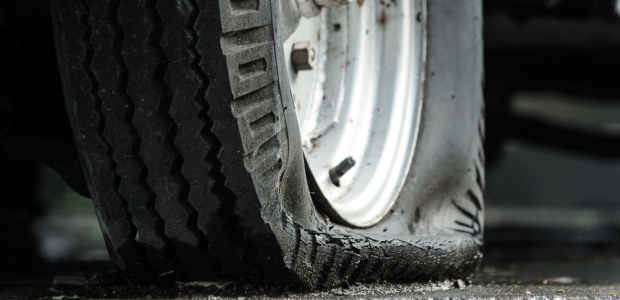
Just in Time for Memorial Day, NHTSA Talks Tire Safety
NHTSA's TireWise website is a one-stop shop for tire information. It covers buying tires, maintaining them, how age can affect their safety, and the information contained on their labels.
With nearly 11,000 tire-related motor vehicle crashes occurring annually on the nation's roads, resulting in nearly 200 deaths per year, May 28 though June 3 is National Tire Safety Week. The National Highway Traffic Safety Administration is reminding drivers that proper tire maintenance is essential for their safety and for saving on the cost of vehicle ownership, too. "Whether you're getting ready for a Memorial Day weekend road trip or just performing routine maintenance on your vehicle, don't forget that your tires are important for safety and savings," the agency noted this week.
NHTSA's TireWise website is a one-stop shop for tire information. It covers buying tires, maintaining them, how age can affect their safety, and the information contained on their labels. The agency's tips include:
- Buying tires: Know the size tires needed for your vehicle type and how the season will affect your tires. Winter, summer, all-terrain, and all-season tires offer different safety solutions.
- Registering rires: Register your tires with the tire manufacturer, online, or by mail to get information in the event of a recall.
- Maintaining tires: Tire health ensures your safety and your savings. Make sure your tires are properly inflated and rotated regularly to avoid a flat tire, blowout, or the tread coming off your tire. Proper tire inflation can save you 11 cents per gallon on fuel and can extend the average life of a tire by 4,700 miles.
- Understanding tire labels: There's a ton of information on your tires that tells you about how they work with your vehicle and their effects on its performance. Understanding the tire labels for your passenger vehicle or light truck is important for maintaining and buying new tires.
- Replacing tires: You should stop using worn or aged tires for several reasons, including if a tire's tread is worn down to a minimum depth using the penny test, looking for signs of physical damage (cuts, cracks, bulges, etc.), or signs of irregular wear or other damage due to under inflation or overloading. If you notice any tire performance issues, such as failing to maintain proper tire inflation pressure, noise, or vibration, consult a tire service professional.
- Keeping tires green: Underinflated tires reduce your vehicle's fuel economy and increase the amount of greenhouse gases and other pollutants that fossil fuel burning vehicles release into the air.
Tire safety and maintenance are especially important for 15-passenger vans, according to the agency, which urges the motoring public to follow the conversation about tire safety by using the hashtag #TireWise.